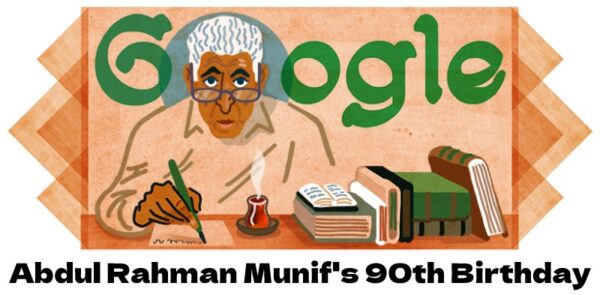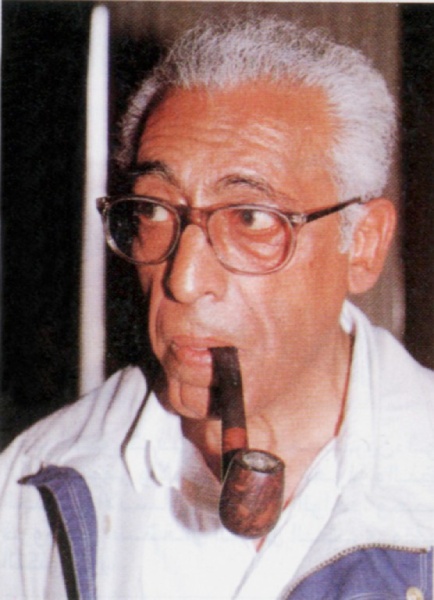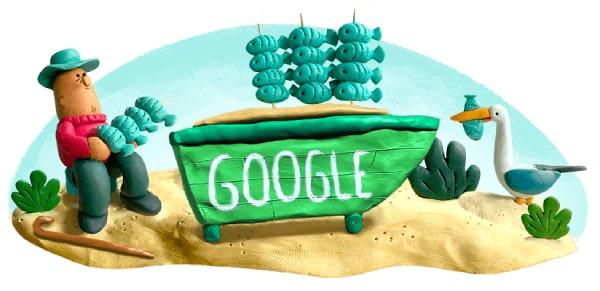
Exploring Fascinating Fact about Abdul Rahman Munif, the Saudi Arabian Novelist
Celebrating the Legacy of Abdul Rahman Munif: Google Doodle
Notable Facts about the Renowned Saudi Arabian Novelist.
On May 29, 2023, Google paid tribute to Abdul Rahman bin Ibrahim al-Munif, also known as Abdelrahman Munif, through a captivating Google Doodle. Munif, considered one of the most influential modern Saudi authors and one of the finest Arabic writers of the 20th century, leaves behind a remarkable legacy. Here, we delve into some intriguing and entertaining facts about Abdul Rahman Munif (عبد الرحمن منيف).
Who was Abdul Rahman Munif (عبد الرحمن منيف)?

Quick Look
- Birth name: Abdul Rahman bin Ibrahim al-Munif
- Birth date: May 29, 1933
- Birthplace: Amman, Jordan
- Died on: January 24, 2004 (aged 70)
- Death place: Damascus, Syria
- Resting place: Dahdah cemetery
- Famous as: Writer, journalist, politician, economist
- Language: Arabic
- Nationality: Saudi Arabian
- Alma mater:
- University of Belgrade
- University of Paris
- Genre: Novel, short story, critic, biography
- Literary movement: Literary realism
- Notable works:
- Cities of Salt (1984–1989)
- Sharq al-Mutawassit (1975)
- Notable awards: Owais Cultural Award (1989).
Exploring the Life and Achievements of Abdul Rahman Munif (عبد الرحمن منيف):
- A Multifaceted Talent: Abdul Rahman Munif excelled as a novelist, short story writer, memoirist, journalist, thinker, and cultural critic.
- Birth and Education: Born on May 29, 1933, in Amman, Jordan, to Saudi parents, Munif later described his childhood in his work “Story of a City: A Childhood in Amman.”
- Academic Pursuits: Munif studied law in Baghdad and Cairo before obtaining a law degree from the Sorbonne and a Ph.D. in oil economics from the University of Belgrade in 1961.
- Political Involvement: Munif joined the Ba’ath Party upon returning to Iraq and worked in the oil ministry. He edited the industry journal “al-Naft wa al-Tanmiya” (Petroleum and Development) during this time.
- A Move to Damascus: In the 1970s, Munif left his position in the Iraqi ministry and the Ba’ath Party, relocating to Damascus, Syria. It was there that he began his writing career.
- Social Commentary: Munif became renowned for his biting satires of Middle Eastern elites, particularly those in Saudi Arabia. Consequently, many of his books were banned, and his Saudi citizenship was revoked.
- Thematic Expertise: Leveraging his expertise in the oil industry, Munif critically examined the businessmen and politicians who shaped it.
- Literary Calling: Even as a child, Munif showed an interest in writing and believed in literature’s power to raise awareness. Before embarking on his first book, he published several short stories.
- Notable Works: Munif authored fifteen novels, with his most famous being the “Cities of Salt” quartet (1984-1989). Edward Said hailed it as the sole serious work of fiction depicting the impact of oil, Americans, and local oligarchies on a Gulf country.
- Pioneering Novels: Munif’s novel “Al Ashjar wa-ightiyal Marzuq” (Trees and the Assassination of Marzooq), published in 1973, inspired reflections on a more equitable and free society.
- Global Recognition: While not widely popular in the West, Munif’s works enjoy high regard and widespread readership throughout the Middle East.
- Critic of Regimes: Munif was a vocal critic of Saddam Hussein and his regime, yet he also staunchly opposed the American invasion of Iraq. In his final years, he focused on non-fiction projects opposing what he perceived as a new imperialism.
- Prestigious Awards: Munif received the Al-Owais Cultural Award, often referred to as the Arab equivalent of the Nobel Prize for Literature, in 1989. He was also honored with the Award of Cairo Gathering for Arab Creativity in Novel Writing in 1998.
- Nobel Recognition Rumors: It was rumored that Munif was shortlisted for the Nobel Prize in Literature in the same year Naguib Mahfouz received.
- In honor of Abdul Rahman Munif’s 90th birthday, Google featured a Google Doodle on its homepage on May 29, 2023.
Also Read: Barbara May Cameron Google Doodle on May 22, 2023
NNewsy
Nancy in NNewsy is a seasoned news writer with a passion for delivering timely and engaging stories to readers. With a background in journalism and a curiosity for uncovering the truth, Nancy has dedicated her career to providing accurate and informative news content.
Throughout her years of experience, Nancy has covered a wide range of topics, including politics, current events, health, technology, and entertainment. She believes in the power of journalism to inform and empower individuals, and she strives to bring important issues to the forefront through her writing.
Nancy's commitment to journalistic integrity is evident in her meticulous research and fact-checking process. She understands the responsibility that comes with reporting the news and ensures that her articles are accurate, balanced, and objective.
As a news writer at Nnewsy, Nancy aims to go beyond the surface-level details and provide readers with in-depth analysis and context. She believes in the importance of presenting multiple perspectives, allowing readers to form their own opinions based on a well-rounded understanding of the issues.
With a talent for storytelling, Nancy captivates readers with her engaging writing style. She has a knack for distilling complex information into digestible pieces, making it accessible and relatable to a wide audience.
Nancy values the trust placed in her by readers and understands the impact that news can have on individuals and society as a whole. She is committed to upholding the principles of journalism and delivering news that is informative, thought-provoking, and relevant.
When she's not chasing the latest stories, Nancy enjoys exploring new places, reading books, and spending quality time with her loved ones. She believes that life experiences and personal connections enrich her writing, allowing her to connect with readers on a deeper level.
Follow Nancy Johnson's articles on Nnewsy for comprehensive and insightful news coverage that keeps you informed and engaged.
Website
https://nationalnewsy.com



